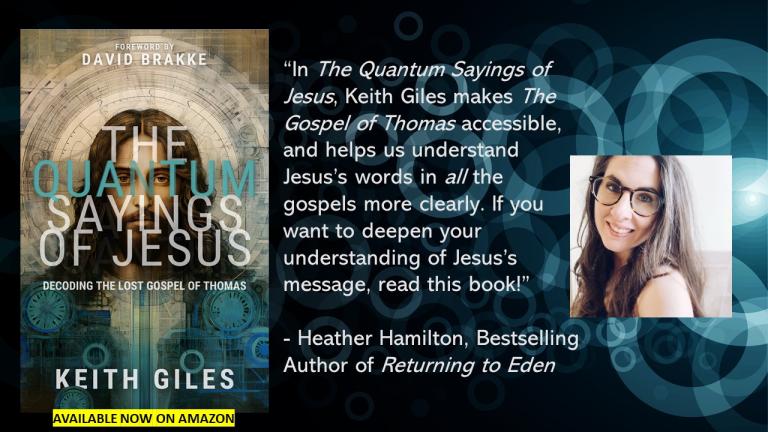As much as this duality confounds the concepts of Oneness and Non-duality prevalent in other Valentinian texts and contradicts statements from the Gospel of Thomas, the Gospel of Philip, it is nevertheless present in Chapter 8 of the Gospel of Truth.
Perhaps this alone is enough to suggest that Valentinus did not author this text, or that later scribes and commentators added the statements found in this chapter. Who knows? All we can do is deal with what is in the text, and like it or not, this text contains the teaching that these two groups of people are distinct from one another, and that those who are “ignorant” may “dissolve” if they do not escape their ignorance.
Reading from verse 5 of chapter 8, we see the argument against the arrogant following the statement that they “will dissolve” with forgetfulness:
“If not, why do these arrogant ones have no name? Why do they have no voice? So, those who have knowledge are from above; and if called, they hear and answer, turning to the one who called them and going up to him. They know how they are called, have knowledge and do the will of the who called them. They want to please him, they find rest – their names become their own. Those who have knowledge in this way know where they come from and where they are going. They know as ones who, having become drunk, have turned from their drunkenness and returned to themselves, setting themselves right.” (GoT 8:5b – 11)
One might ask how we know that these arrogant ones “have no name” and “no voice” as the author asserts. Perhaps the reasoning is that, since God has not called their name, this proves they have no name to call, and that since they have not answered God’s call, they must not have any voice. But this is circular reasoning. Perhaps they have not answered because God has not called their name yet. How could we decide now that this proves they have no name or voice? The text itself says “if (they are) called, they hear and answer,” which suggests that the calling is not automatic and that some are still awaiting it so they can respond.
Respected Gnostic scholar Bentley Layton has said that the Gospel of Truth implies a “cosmological model…(in which) all is enclosed by God and ultimately, all is God, and scholar William Schoedel has argued that “such theology presupposes a non-dualistic cosmology; for it does not allow that the God who contained all things is limited by any other reality.” Another scholar, Han Jonas, has also said that Valentinianism speaks of a divine realm that is “not self-contained and remote,” but contains all things within itself, including the cosmos.
So, a true Valentinian text shouldn’t entertain the notion that some members of humanity could possibly remain ignorant forever and become separated from the Divine in any way. The God who fills all things fills them, and the God within them cannot forsake Godself. The Gospel of Truth agrees with this idea when it says:
“It was quite amazing that they were in the Father without being acquainted with him, and that they alone were able to leave by themselves, since they were not able to perceive and recognize the One whom they were.” (GoT 9:3)
The text continues to say that God revealed his will as knowledge [Gnosis] which is the living book that contains the letters of truth which “speak and know themselves.” These letters are each “gathered in unity…by the Father for the generations so that they might know [Him].” (9:6)
Chapter 10 begins with something of a poem which either further complicates our problem from Chapter 8, verse 4, or it satisfies the paradox by eliminating the possibility of duality itself:
“His wisdom contemplates the Word,
his teaching expresses it,
his knowledge has revealed it,
his honor is a crown upon it,
his joy agrees with it,
his glory has exalted it,
his image has revealed it,
his rest has received it,
his love has embodied it,
his trust has embraced it.
Thus the word of the father goes forth into all, being the fruit of his heart and expression of his will. It supports all. It chooses them (all) and also takes the character of all and purifies them, causing them (all) to return to the father, to the mother, Jesus of the utmost sweetness.”
I don’t know a better way to reconcile the problems of 8:4 than to read this and conclude that any notions of duality between the Arrogant and the Wise are fully dissolved in this passage.
The “Word of the Father” (the Logos) has “gone forth to all” (everyone) who are “the fruit of (God’s) heart and (an) expression of (God’s) will.” God’s Word (the Logos) “supports all” (everyone) and it “chooses the all” (everyone) and also “purifies…the character of all” (everyone) which causes “them all to return to the Father, the Mother (and to) Jesus of the utmost sweetness.”
So, even those who – at this time – remain in ignorance and arrogance of the Father will inevitably “return to the Father, the Mother and to Jesus” in the end.
**

The newest book from Keith Giles, “The Quantum Sayings of Jesus: Decoding the Lost Gospel of Thomas” is available now on Amazon. Order HERE>
Keith Giles is the best-selling author of the Jesus Un series. He has appeared on CNN, USA Today, BuzzFeed, and John Fugelsang’s “Tell Me Everything.”
He co-hosts The God Squad podcast, and the Heretic Happy Hour Podcast.


















